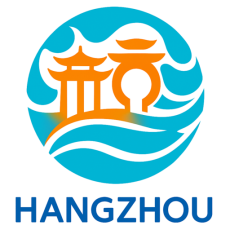
Hangzhou’s hospitality scene transcends generic luxury with intimate boutique hotels that blend Song Dynasty aesthetics, tea culture, and avant-garde design. Unlike cookie-cutter international brands, these properties offer locally rooted experiences—from lakeside literati villas to repurposed silk factories.
This guide reveals Hangzhou’s 7 most extraordinary boutique hotels, evaluated for:
✔ Architectural distinction
✔ Cultural immersion
✔ Service personality
✔ Instagram-worthy moments
1. Amanfayun – The Silent Village Retreat
Why Unique? A 1,200-year-old Buddhist village reborn as a luxury sanctuary near Lingyin Temple.
Key Features
- 47 courtyard houses with heated stone floors & no TVs
- Private access to dawn meditation sessions at Lingyin
- Tea master classes in neighboring Longjing plantations
Design Highlight: Restored Qing Dynasty beams with minimalist Aman interiors.
Best For: Spiritual seekers & digital detoxers.
Nightly Rate: ¥4,200+
2. The Azure Qiantang – Hangzhou’s Design Hotel Pioneer
Why Unique? China’s first member of Design Hotels™, where contemporary art meets West Lake poetry.
Key Features
- Rotating exhibitions by Zhejiang Academy of Art
- Room 360° – A circular suite with rotating bed
- Rooftop infinity pool mirroring the Qiantang River
Design Highlight: Floating glass walkways over lotus ponds.
Best For: Art collectors & design enthusiasts.
Nightly Rate: ¥1,800+
3. Vineyard Tea Manor – A Ouyang Bamboo Masterpiece
Why Unique? Architect Ouyang Kun’s bamboo-and-glass teahouse-turned-hotel.
Key Features
- Tea sommelier suites with personal gongfu cha stations
- Underground wine cellar pairing Longjing with Burgundy
- Morning “tea harvesting” in private garden
Design Highlight: Cantilevered bamboo corridors overlooking tea terraces.
Best For: Tea connoisseurs & romantic escapists.
Nightly Rate: ¥2,600+
4. Fayun Place – The Scholar’s Hideaway
Why Unique? A Ming Dynasty academy transformed into an antique-filled literary retreat.
Key Features
- Library of rare books (including Song Dynasty replicas)
- Inkstone calligraphy workshops
- Hidden courtyard with 400-year-old osmanthus tree
Design Highlight: Scholar’s study rooms with hidden Qing-era murals.
Best For: History buffs & writing retreats.
Nightly Rate: ¥3,100+
5. The Silk House – Industrial Heritage Reimagined
Why Unique? A 1930s silk factory converted into a textile-themed design hotel.
Key Features
- Loom-to-linen demonstrations in the atrium
- Silk pajamas provided for all guests
- Rooftop “Cocoon” spa pods
Design Highlight: Original Jacquard looms repurposed as art installations.
Best For: Fashion designers & creative professionals.
Nightly Rate: ¥1,500+
6. Le Passage Moho – Hangzhou’s Left Bank
Why Unique? A Parisian-style literary hotel with Zhejiang’s only bookstore cinema.
Key Features
- 24-hour poetry library with fireplace lounge
- Secret cinema screening Chinese New Wave classics
- Absinthe bar serving West Lake-inspired cocktails
Design Highlight: Black-and-white film reel mosaics.
Best For: Night owls & cinephiles.
Nightly Rate: ¥1,200+
7. Moonlight Shadow – The Floating Pavilion
Why Unique? A modern interpretation of a Song Dynasty water pavilion, seemingly hovering over West Lake.
Key Features
- Transparent kayaks for private moonlit lake tours
- Five-element spa using lotus and Longjing extracts
- AI-powered room controls disguised as antique inkwells
Design Highlight: Reflective titanium roof creating “double moon” illusions.
Best For: Tech-loving aesthetes.
Nightly Rate: ¥2,800+
Comparison: Hangzhou Boutique Hotels at a Glance
| Hotel | Theme | Best Feature | Starting Rate |
|---|---|---|---|
| Amanfayun | Ancient village | Temple access | ¥4,200 |
| Azure Qiantang | Contemporary art | Rotating suite | ¥1,800 |
| Vineyard Tea | Bamboo & tea | Personal tea master | ¥2,600 |
| Fayun Place | Literary heritage | Antique library | ¥3,100 |
| The Silk House | Industrial chic | Rooftop cocoon spa | ¥1,500 |
| Le Passage Moho | Bohemian | Bookstore cinema | ¥1,200 |
| Moonlight Shadow | Futuristic trad | Floating kayaks | ¥2,800 |
Booking Strategies
- Secret Perk: Amanfayun guests get after-hours Lingyin Temple access
- Best Value: Silk House’s weekend textile workshops (free for guests)
- Last-Minute: Moonlight Shadow releases lake-view rooms at 40% off on weekdays
Why Choose Boutique Over 5-Star Chains?
- Authenticity – Sleep in a restored Ming scholar’s study (Fayun Place)
- Exclusivity – Some properties have <15 rooms
- Storytelling – Every design element reflects Hangzhou’s culture
Final Tip
For true immersion, pair your stay with:
- A silk-weaving class at The Silk House
- A dawn tea-picking session at Vineyard Tea Manor
- A private moon-viewing at Moonlight Shadow
These hotels don’t just accommodate—they curate unforgettable chapters of your Hangzhou story.
Which aesthetic speaks to you? Share in the comments!





